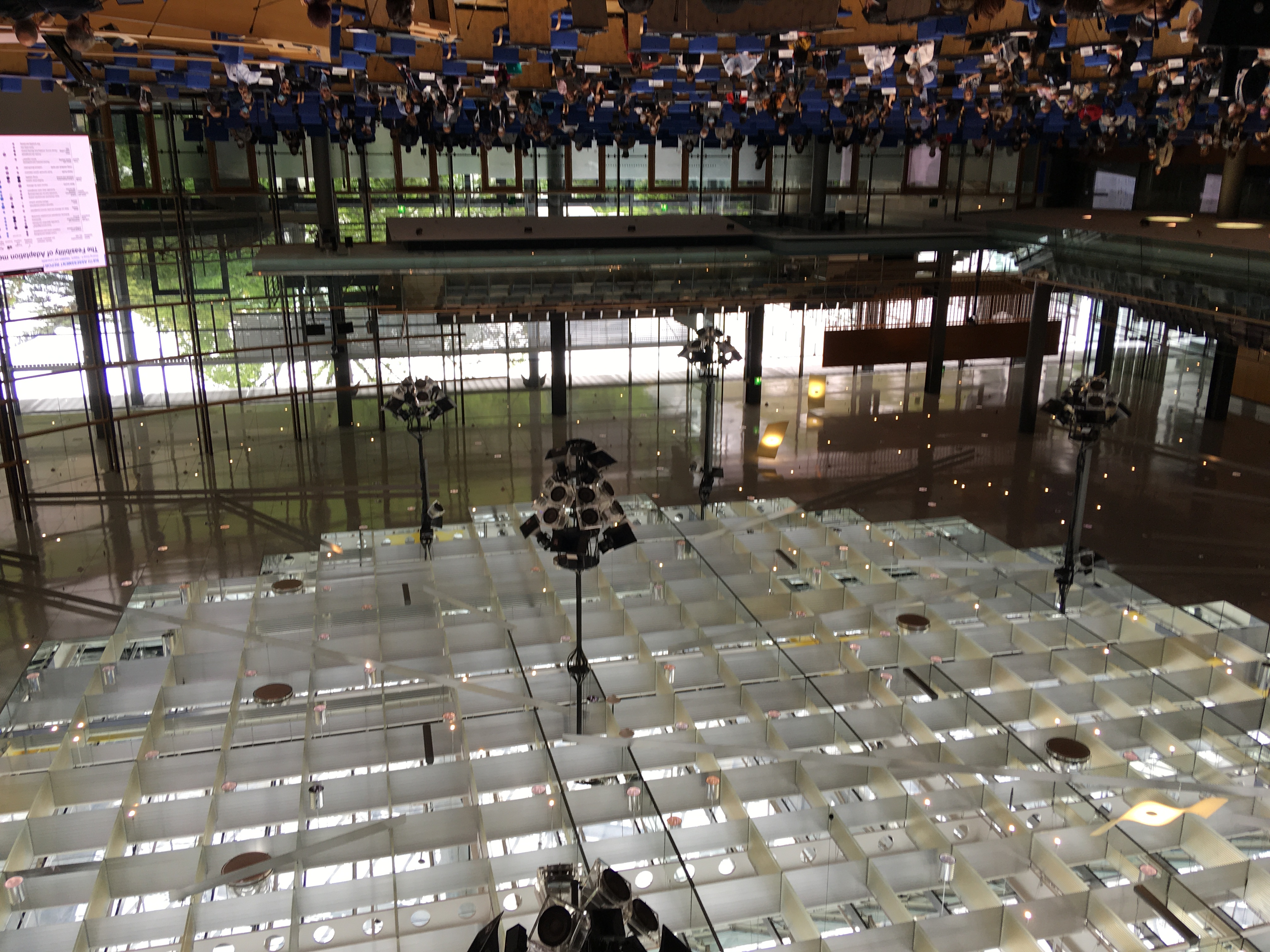[HD-3] Lose it, break it
Geeze, I hear you say: that last one was weird. Give me some intense, high-level policy recaps! OK, OK, fine. I warned you.
I am Bernard Soubry, welcome back to Hofgarten Days, and let’s try to explain loss and damage. This is your third email, and remember, you asked for it.

Imagine you did a bad thing. Or rather, imagine you did a thing, and have only recently realized that it was a bad thing, because it indirectly affected a bunch of people, including yourself; but you’re well-off, and you can survive it. Like, you spilled a bunch of ice cream on the floor; this sucks for everyone, because it makes the floor sticky and now we have no ice cream, but you own platform shoes and have an ice cream maker, while your roommate just walked in barefoot and was kind of counting on the ice cream that day. Wait, no.
Actually—imagine you did a bad thing. Or rather, imagine that your dad did the bad thing, except in his day, it wasn’t particularly seen as bad, and now the thing, which you have kept doing because it benefits you, is now considered bad; like, ice cream has heretofor-unknown tile cleaning properties, so might as well spill it, baby! But then your roommate is rightly pointing out that they could really use dessert, and now they have to wash their feet, but you’re in charge of the bathroom—wait, no.
Actually—imagine your dad did a bad thing, and you have kept doing a bad thing, because it benefits you and all your bad influences (rock music, the ice cream lobby, those guys by the dep who smoke cigarettes and eat Klondike bars for fun) say you might as well. Except now your roommate who doesn’t have platform shoes is getting mad, because they’ve figured out that you’re going to keep doing this. And they’ve asked you to stop, and also pitch in on a) a foot bath so that they can get the ice cream off their feet and b) some actual soap, because at this point we really should clean the kitchen tiles. Wait—
Imagine someone has done a bad thing, and you are alternately the person who has originally done it, or the dad of the person who did, or the roommate without platform shoes, or the ice cream salesperson, and are all trying to get away unscathed from this kitchen. Also, imagine everyone in every apartment in the South End of Halifax has been having this problem, and all the barefoot-enthusiast roommates have made it pretty clear they collectively want some foot hydrotherapy, plus for you to start using soap, plus for some ice cream so that they can clean their kitchen tiles while they get their hands on some soap. Wait, no, wait —
This is the concept of loss and damage, and it is not particularly well-served by metaphor.
What’s become clear in the first real day of negotiations is that everything that’s going on in the next few weeks is probably going to be about this whole ice cream on the tiles thing. A lot of developing country groups pushed the topic in Glasgow and were given the promise that we’d talk about it here—something called the Glasgow Dialogue on Loss and Damage. Which they accepted as a compromise, so long as we also talk about putting together a “facility” for loss and damage, a term that feels extremely concrete and real and scary to those countries who might have to end up paying up, or get sued for historical wrongs.
Yesterday, it became clear that there wasn’t a lot of space to talk about the actual money needed to help developing countries adapt, or how it would be raised or transferred, and we got an exciting moment: AOSIS called a point of order, upstaged some technical presentations, and made enough of a fuss that various aides scurried off to organize bilateral meetings behind the scenes.
So I stood very still yesterday at my coffee stand-table next to the Chambers Hall, and overheard [redacted] and [redacted] talk very tentatively about what this whole point of order was about, and whether anything could be traded for anything else, and I thought: ah, okay. This is where the diplomacy really starts.
Oftentimes, a million different talks are all just hiding one big ask. This time, I think it’s about ice cream. Or about tiles? Or about your dad—no, wait—
Losing it, or damaged, clearly,
B